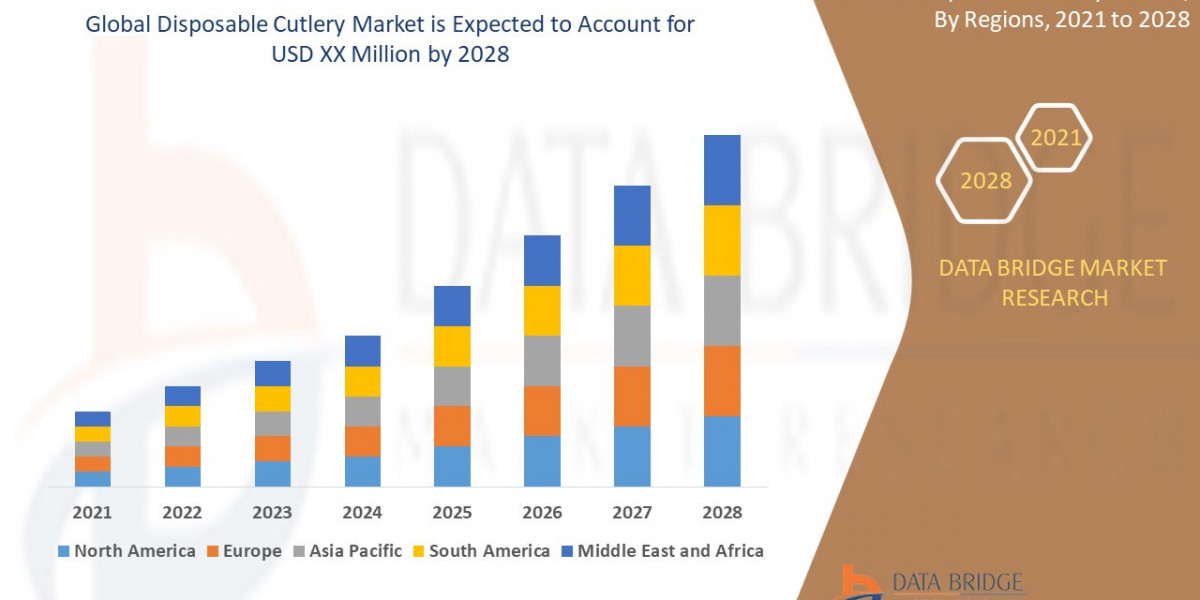The landscape of Time Tracking Apps has undergone a remarkable transformation in 2025, driven by explosive market growth and technological innovations that are fundamentally changing how teams work. With the global time tracking software market expanding from $5.75 billion in 2024 to a projected $20.13 billion by 2033 at a 15% CAGR, businesses are embracing sophisticated solutions that go far beyond simple timer functionality.
This dramatic evolution reflects the increasing demand for intelligent workforce management tools as organizations navigate hybrid work models, remote team coordination, and the need for enhanced productivity insights. Modern Time Tracking Apps now incorporate artificial intelligence, biometric authentication, wearable integration, and predictive analytics to deliver comprehensive workforce solutions that were unimaginable just a few years ago.
Artificial Intelligence: The Game-Changing Force
Automated Time Detection and Smart Categorisation
The most significant advancement in Time Tracking Apps for 2025 is the integration of sophisticated AI algorithms that automatically detect and categorize work activities. Leading solutions like Timely achieve 80% accuracy in automatically matching time entries to specific projects and clients by learning from user behavior patterns. This eliminates the traditional burden of manual time entry while providing unprecedented accuracy in time allocation.
AI-powered systems now analyze application usage, document creation, meeting participation, and communication patterns to generate comprehensive time logs without user intervention. Time Champ has embraced this trend by incorporating intelligent activity recognition that can distinguish between productive work time and idle periods, automatically adjusting records to reflect actual work hours.
Predictive Analytics and Performance Optimisation
Advanced Time Tracking Apps in 2025 leverage historical data to predict project completion times, identify productivity bottlenecks, and recommend optimal resource allocation. Hourly's predictive AI tool analyzes past performance periods and staff absence patterns to help managers plan workforce capacity more effectively. These systems can forecast when projects might exceed deadlines and suggest proactive interventions to maintain schedules.
The predictive capabilities extend to employee wellness, with AI systems detecting patterns that indicate potential burnout or overwork. By analyzing work intensity, break frequency, and productivity fluctuations, these apps can alert managers before performance issues arise.
Mobile-First Design and Remote Work Optimisation
Seamless Connectivity Across Devices
The shift toward remote and hybrid work models has made mobile accessibility essential for Time Tracking. Current statistics show that 27% of U.S. employees work exclusively remotely, while an additional 52% operate in hybrid models. This has driven developers to prioritise mobile-first design with full feature parity across devices.
Modern Time Tracking Apps ensure seamless synchronisation between desktop, mobile, and web platforms. Timelier exemplifies this approach by offering consistent functionality across all access points while maintaining offline capability that automatically syncs when connectivity returns. This flexibility supports the 36.2 million American employees expected to work remotely by 2025.
Geofencing and Location-Based Tracking
Advanced geofencing technology has become standard in Time Tracking Apps, enabling automatic clock-in and clock-out based on employee location. This feature proves particularly valuable for field workers, consultants, and hybrid teams who work across multiple locations. GPS-enabled tracking ensures accurate attendance records while supporting flexible work arrangements.
Jibble has pioneered secure location-aware tracking with biometric attendance verification, preventing buddy punching and time fraud while maintaining employee privacy. These systems can differentiate between work locations, client sites, and home offices, automatically categorizing time based on geographic context.
Biometric Integration and Enhanced Security
Facial Recognition and Iris Scanning
Security and accuracy concerns have driven the adoption of biometric identification in Time Tracking Apps. Facial recognition technology ensures that only authorized employees can clock in, eliminating time theft and buddy punching that costs businesses billions annually. These systems can operate in various lighting conditions and recognize employees wearing masks or glasses.
Iris scanning technology, while still emerging, offers even higher accuracy rates and is being integrated into enterprise-level Time Tracking Apps for high-security environments. This technology provides unparalleled authentication while maintaining user convenience through contactless operation.
Fraud Prevention and Compliance
Biometric features serve dual purposes: preventing time fraud and ensuring regulatory compliance. With 69% of employees not tracking time accurately and productivity dropping 40% during multitasking, biometric verification provides the accuracy needed for fair payroll processing and labor law compliance.
The integration of multiple verification methods, including facial recognition, GPS location, and device fingerprinting, creates a comprehensive security framework that maintains data integrity while respecting employee privacy.
Wearable Technology Integration
Smartwatch and Fitness Tracker Connectivity
Time Tracking Apps are increasingly integrating with wearable devices to provide holistic workforce management solutions. Smartwatches can automatically track work hours while monitoring health metrics, offering insights into employee well-being alongside productivity data. This integration supports the growing focus on employee wellness and work-life balance.
Wearable integration enables features like stress level monitoring, fatigue detection, and activity tracking that help managers understand the complete picture of employee performance. When an employee's heart rate variability indicates high stress levels, managers can proactively address workload concerns before they impact productivity.
Energy Expenditure Tracking
An emerging trend in Time Tracking Apps is the measurement of mental and physical effort expended during work activities. This concept goes beyond simple time tracking to assess the energy cost of different tasks, providing insights into employee engagement and well-being. By analyzing biometric data from wearables, these systems can identify when employees are working at optimal capacity versus when they're struggling with demanding tasks.
This data helps organizations optimize task allocation, schedule challenging work during peak energy periods, and ensure sustainable workload distribution across teams.
Advanced Integration and Workflow Automation
Seamless Tool Ecosystem Connectivity
Modern Time Tracking Apps function as central hubs that integrate with entire business software ecosystems. Leading solutions offer pre-built integrations with project management platforms, accounting software, payroll systems, and communication tools. This connectivity eliminates data silos and creates unified workflows that save administrative time.
Time Champ exemplifies this approach by offering integrations with popular platforms like Asana, Slack, QuickBooks, and Zapier, enabling automated workflows that trigger actions across multiple systems based on time tracking data. When a project reaches a specified time threshold, the system can automatically generate invoices, send client notifications, or reassign resources.
API-First Architecture
The trend toward API-first development enables businesses to create custom integrations that meet specific workflow requirements. Time Tracking Apps with robust APIs allow organizations to build bespoke solutions that connect time data with proprietary systems, creating tailored automation that supports unique business processes.
This flexibility proves essential for enterprises with complex operational requirements or industry-specific compliance needs that standard integrations cannot address.
Real-Time Analytics and Dashboard Innovation
Context-Aware Time Allocation
Advanced Time Tracking Apps now provide context-aware analysis that understands the nature of work being performed. Instead of simply logging hours, these systems recognize when employees are engaged in focused work, collaborative activities, or administrative tasks. This granular insight enables more accurate productivity assessment and better resource planning.
The technology can distinguish between different types of cognitive load, recognizing when employees are working on complex problem-solving versus routine tasks. This information helps managers allocate work more effectively and set realistic expectations for different activity types.
Hyper-Personalized Reporting
Modern Time Tracking Apps offer personalized dashboards that adapt to individual work styles and preferences. These systems learn from user behavior to present the most relevant metrics and insights for each team member. Managers receive executive summaries focused on team performance and project progress, while individual contributors see detailed breakdowns of their productivity patterns and improvement opportunities.
Customizable reporting features allow users to create specific views for different purposes, whether tracking billable hours for clients, monitoring project budgets, or analyzing team productivity trends over time.
Time Champ: Leading the Innovation Wave
Time Champ stands at the forefront of Time Tracking Apps innovation, offering a comprehensive solution that incorporates many of the latest trends shaping the industry. Starting at just $2.90 per user monthly, Time Champ provides enterprise-grade functionality including AI-powered automatic tracking, productivity analytics, and seamless integration capabilities.
Key features that position Time Champ as a leader include:
- Intelligent Activity Recognition that automatically categorizes work activities
- Real-time Productivity Monitoring with detailed analytics and insights
- Mobile Apps with full offline capability and cross-platform synchronization
- Advanced Reporting with customizable dashboards and export options
- Comprehensive Integrations supporting workflow automation across business tools
- Flexible Deployment options supporting various business sizes and requirements
The platform's focus on user experience and privacy ensures high adoption rates while providing the detailed insights managers need for effective team coordination and project management.
Privacy and Ethical Considerations
Balancing Transparency with Privacy
As Time Tracking Apps become more sophisticated, maintaining the balance between business insights and employee privacy has become crucial. Leading solutions implement privacy-by-design principles that collect necessary data while protecting personal information. Features like anonymized reporting, consent management, and data retention controls ensure compliance with regulations like GDPR while maintaining system effectiveness.
Modern apps provide transparency about data collection practices and give employees control over their personal information. This approach builds trust and improves adoption rates while ensuring regulatory compliance across different jurisdictions.
Employee-Centric Design
The most successful Time Tracking Apps focus on empowering employees rather than simply monitoring them. These systems provide individuals with insights into their own productivity patterns, helping them identify optimal work schedules and improve time management skills. By framing time tracking as a tool for personal development rather than surveillance, organizations achieve better employee buy-in and more accurate data collection.
Looking Ahead: Future Innovations
Augmented Reality Integration
The next frontier for Time Tracking Apps includes augmented reality features that provide contextual information about tasks, time allocation, and productivity metrics directly in the user's field of view. This technology could revolutionize how field workers and technical professionals track time while maintaining focus on their primary tasks.
Advanced Wellness Integration
Future Time Tracking Apps will incorporate more sophisticated wellness monitoring, including stress level detection, sleep quality analysis, and mental health indicators. This holistic approach to workforce management will help organizations optimize not just productivity but also employee well-being and long-term sustainability.
Frequently Asked Questions (FAQs)
Q: How accurate are AI-powered Time Tracking Apps compared to manual time entry?
A: Leading AI-powered solutions achieve 80% accuracy in automatic categorization, significantly higher than manual time tracking where 69% of employees don't track time accurately. AI systems reduce human error while capturing time that employees often forget to log manually.
Q: Can Time Tracking Apps work effectively for remote teams across different time zones?
A: Yes, modern Time Tracking Apps are designed specifically for distributed teams. They provide real-time synchronization, automatic time zone conversion, and asynchronous collaboration features that support global workforce management effectively.
Q: What security measures do Time Tracking Apps use to protect sensitive employee data?
A: Advanced Time Tracking Apps employ multiple security layers including data encryption, biometric authentication, role-based access controls, and privacy-by-design principles. Many solutions are compliant with GDPR, HIPAA, and other regulatory standards.
Q: How do wearable integrations in Time Tracking Apps respect employee privacy?
A: Reputable solutions process biometric data locally on devices when possible and provide granular privacy controls. Employees can choose what data to share, and systems focus on productivity insights rather than detailed personal health information.
Q: Are Time Tracking Apps suitable for creative professionals who work on varied projects?
A: Modern Time Tracking Apps excel at managing creative workflows through automatic project detection, context-aware categorization, and flexible billing structures. AI systems can distinguish between different creative activities and provide insights that help optimize creative processes.
Q: How quickly can businesses see return on investment from implementing Time Tracking Apps?
A: Most organizations see ROI within 3-6 months through reduced payroll errors, improved project profitability, and increased productivity. The average business saves over $22,000 annually from implementing effective time tracking solutions.







